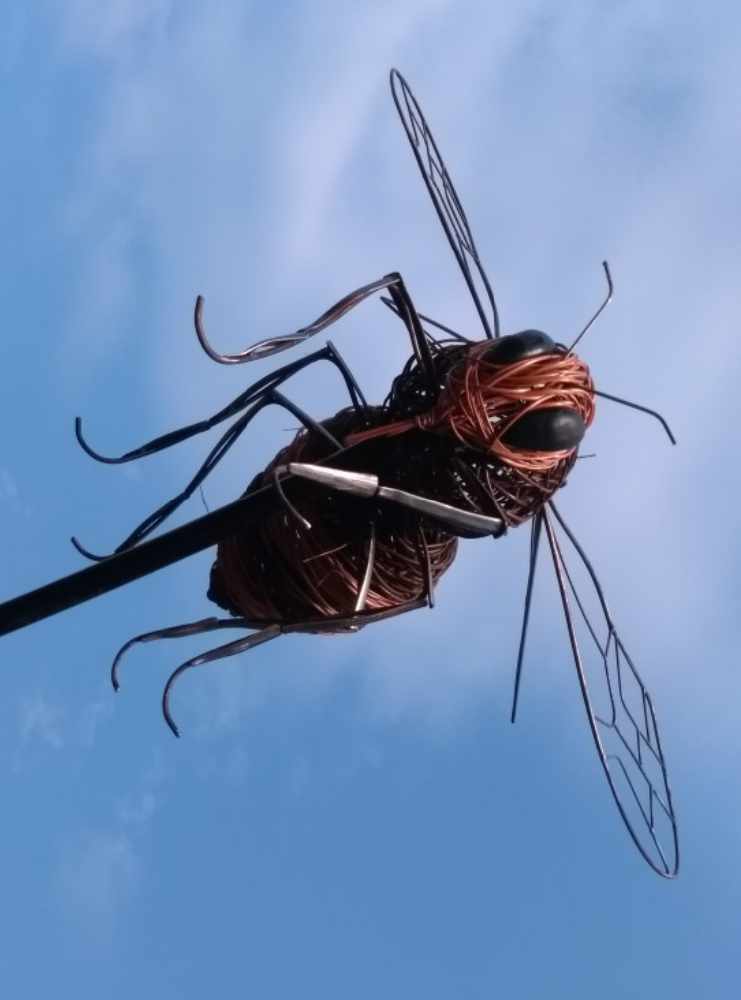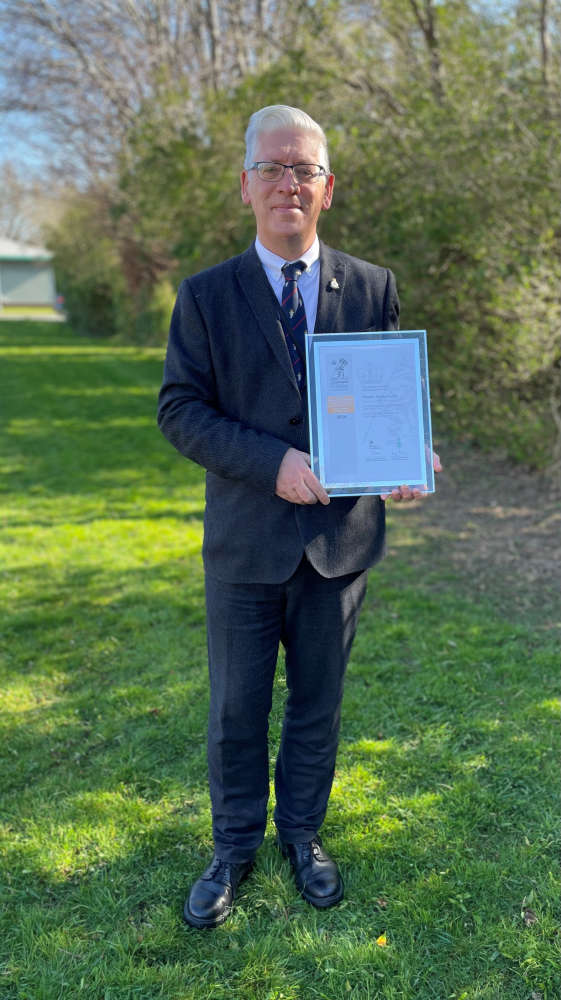
Alexandra Park, Hoole is officially the bee’s knees, after its pollinator habitat project created a buzz and scooped a national award.
The park has won a Bees' Needs Champion Award among 31 other successful applicants, announced in an online ceremony.
The Department for Environment, Food and Rural Affairs (DEFRA) runs the Bees’ Needs Champions Awards in partnership with the Green Flag Awards, the Bee Farmers’ Association, Championing the Farmed Environment and the Nature Friendly Farming Network. The awards recognise and celebrate examples of exemplary initiatives undertaken by local authorities, community groups, farmers and businesses to support pollinators.
The pollinator park project, commissioned by Cheshire West and Chester Council’s Parks and Open Spaces team created an amazing variety of bespoke homes for bees and bugs made from a variety of materials including willow, birch, bamboo and metal.
Artist, Katayoun Dowlatshahi, was selected and commissioned to design the habitats, and the artworks made their debut in the park during August.
The art installations support additional work which will improve facilities including the pathway network, refurbishment of the toilet facility and creation of a pollinator planting scheme in the park
Cabinet Member for Climate Emergency, Councillor Matt Bryan said: “This is a great news for such a fabulous project. It has shown the importance of encouraging more pollinator insects into our open spaces, and increasing biodiversity in our parks and tackling climate change to protect ecosystems in the borough is high on the Council’s agenda.
Roger Davey, Chair of the Friends of Alexandra Park Group said: ‘This fantastic award confirms that the creation of the insect corridor, with its bug hotels and new planting, has been a very timely and successful venture. It reminds us that our parks are not just for humans but can also play a major role in encouraging and sustaining insect life on which we all depend.’
The project was made possible due to £100k funding from FCC Communities Foundation (formerly WREN) as well as the Council. The grant was awarded due to the Council’s acknowledgement of the current biodiversity crisis and that education and conservation will play a key role in the project.


 Ten arrested for drugs offences following warrants in Chester
Ten arrested for drugs offences following warrants in Chester
 Ten arrested for drugs offences following warrants in Chester
Ten arrested for drugs offences following warrants in Chester
 Suspended prison sentence and indefinite ban for Cheshire man who abused his dog
Suspended prison sentence and indefinite ban for Cheshire man who abused his dog
 Recovered Stolen Items
Recovered Stolen Items
 Man charged in relation to courier fraud
Man charged in relation to courier fraud
 Police to target criminal use of Cheshire’s roads
Police to target criminal use of Cheshire’s roads
 Council awarded Gold Armed Forces Award
Council awarded Gold Armed Forces Award
 Appeal for footage and witnesses following collision in Delamere
Appeal for footage and witnesses following collision in Delamere
 Appeal for information following serious collision in Chester
Appeal for information following serious collision in Chester
 Your chance to get involved in police scrutiny meetings
Your chance to get involved in police scrutiny meetings
 New Events at Jodrell Bank
New Events at Jodrell Bank
 Inspiring Futures at The Queen’s School
Inspiring Futures at The Queen’s School
 Bowmere Hospital celebrates 20 years of mental health care
Bowmere Hospital celebrates 20 years of mental health care
 Man charged with burglary and drug offences following Chester police stop check
Man charged with burglary and drug offences following Chester police stop check
 Vicars Cross Road closed following collision in Chester
Vicars Cross Road closed following collision in Chester
 Man jailed for controlling and coercive behaviour and assault
Man jailed for controlling and coercive behaviour and assault
 Plan unveiled to transform and improve emergency care at Countess of Chester Hospital
Plan unveiled to transform and improve emergency care at Countess of Chester Hospital
 Chester & Wirral Football League - Weekend Round Up
Chester & Wirral Football League - Weekend Round Up
 Ladbrokes returns to Chester Racecourse
Ladbrokes returns to Chester Racecourse